Get iPullRank’s AI in Content and SEO Free Guide – DOWNLOAD
WEBINAR REPLAY: AI Content for SEO – WATCH
One of the biggest predictions in the marketing world for 2023 was an increase in the use of artificial intelligence in content creation. Between Microsoft’s recent $10 billion interest in OpenAI and how a new AI tool seems to launch each week, this prediction seems likely to come true. Even Gartner offered its perspective on the changing landscape of content creation.
Resistance to new technology never seems to pan out for the naysayers. Take the printing press. When mass production started, the few that owned printing presses protested, fearing it would dilute the quality of written work available. While the new wealth of printing presses definitely led to some bad books, it also made it much quicker to share information than ever before.
The same could be said about the internet. When it was introduced to the public, many dismissed it as a fad. 27 years after hitting the mainstream, the Internet permeates our life so much that SEO is crucial to a brand’s visibility and success.
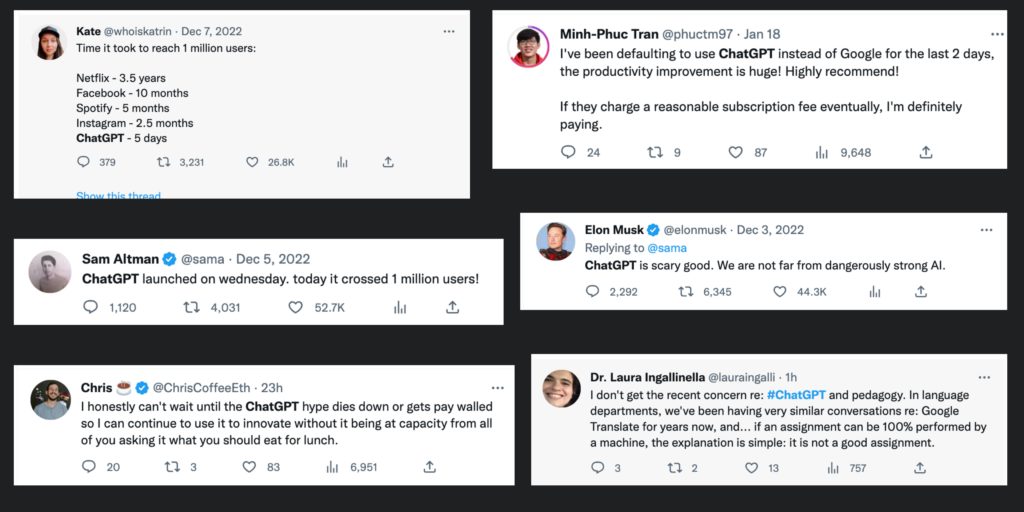
While AI tools offer a lot of value to content production, it’s not the end-all-be-all solution. There is currently no resource to produce AI content that’s optimized, engaging, and voice-accurate. Even with these new AI advancements, good content still requires human creators.
Before you decide your position on AI, let’s look at the business use cases, the benefits, limitations, and what you can possibly expect from future iterations.
As the name suggests, generative AI is an automated platform that generates new content. The new explosion of ever-evolving AI platforms creates new content by scraping existing, relevant pages available on the web, then compiling that information into a post based on prompts you provide.
These prompts are phrases and queries you submit to an AI platform. Much like instructions given to a human writer, they give the platform a set of guidelines. It uses those guidelines to create the content you want.
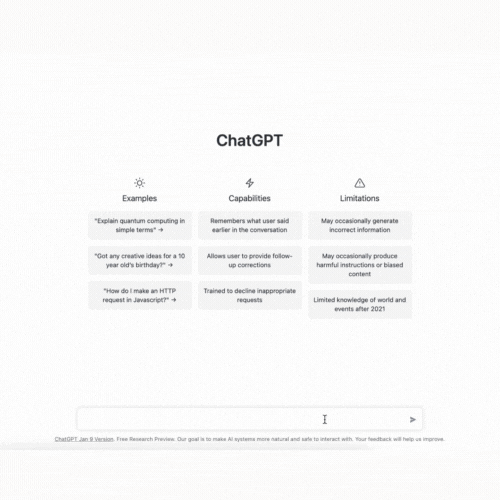
Generative AI can help create many types of content, including:
With the right prompts and phrasing, AI can write nearly anything. We’ve used it to create everything from copy briefs and generated posts to food recipes.
For organizations hoping to reduce the cost of content production, generative AI may be the missing piece. By combining prompt analysis with open access to the Internet, these generative models can learn and write much faster than humans can. Using an AI resource can make a number of content production processes much more efficient:
Instead of spending hours writing a first draft, you can prompt the AI to create one in a matter of minutes. This can be a game-changer for organizations with short production deadlines.

Using generative AI for the grunt work of production can ease the burden on your content team. This can free up your marketers and creators to focus on higher-level things like:
While generative AI can’t take the place of human writers, it can seriously reduce their workload. When used intelligently, it can help your organization produce more and better-coordinated content at a lower price.
Generative AI can’t create original content – at least, not yet. While it can mimic how a human approaches content creation, resulting in well-written paragraphs and realistic images, the outcome is anything but original.
As we mentioned, resources like Open AI create content by scraping the internet for information relevant to the prompt. They then stitch that information together in a way that makes sense. That means anything they write is made entirely of statements recycled from existing content.
An AI content platform is also limited by the number of sources it has access to, as well as the amount of data it is able to access. Currently, ChatGPT-3 only has information up to 2021, so using it to create content related to events later than that will result in additional manual research or trying other prompts for more information.
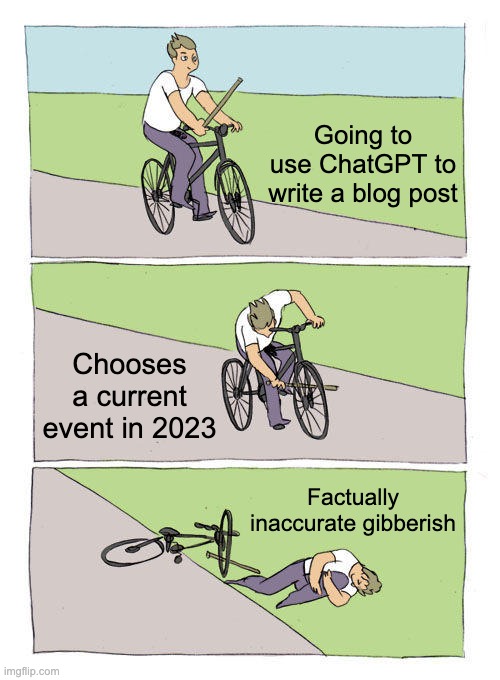
Even with the entire internet at its disposal, generative AI can’t solve all your content issues. Though many in the content marketing and SEO community fear AI will replace them, content creation is still a human-driven process.
Read More: AI Content is not the SEO threat they want you to think it is
AI writing is still in its early stages. Even with all the resources available, there are some things it just can’t handle yet:
In addition, there are some other limitations to keep in mind when using generative AI:
If your organization is considering AI for content generation, there are a few things to keep in mind.
Everyone using generative AI needs to understand how to properly use the prompts, because prompt quality has a huge effect on the resulting piece. A bad prompt may result in inaccurate or out-of-context content.
Along with the emergence of AI like ChatGPT came a rise in AI detection and advanced plagiarism checkers. Because AI scrapes existing web pages to create new content, AI-generated pieces almost always have several instances of plagiarism. It’s important to adjust them thoroughly so they’re truly new and unique.
In addition, Google has been vocal about penalizing AI-generated content on SERPs, and it claims to have the resources to do so. That means that in order to rank, it’s important that your piece doesn’t look like it was created by AI.
As said before when asked about AI, content created primarily for search engine rankings, however it is done, is against our guidance. If content is helpful & created for people first, that’s not an issue.https://t.co/3rs3Yrrrk1https://t.co/TlFEbdXGAphttps://t.co/Yl9XWr5CAN pic.twitter.com/gFTE2C2wq1
— Google SearchLiaison (@searchliaison) January 12, 2023
Generative AI isn’t great at meeting a particular voice and tone. It does its best, but it’s still just a bot that is trying to compile all of the relevant information you request. This means someone will have to proofread and edit the piece.
As a result, AI-created content often requires more editing than a human-written piece. The editorial team will need to update to match the intended voice and tone. They’ll also need to make sure it’s engaging, flows logically, and is actually about the topic you meant to discuss.
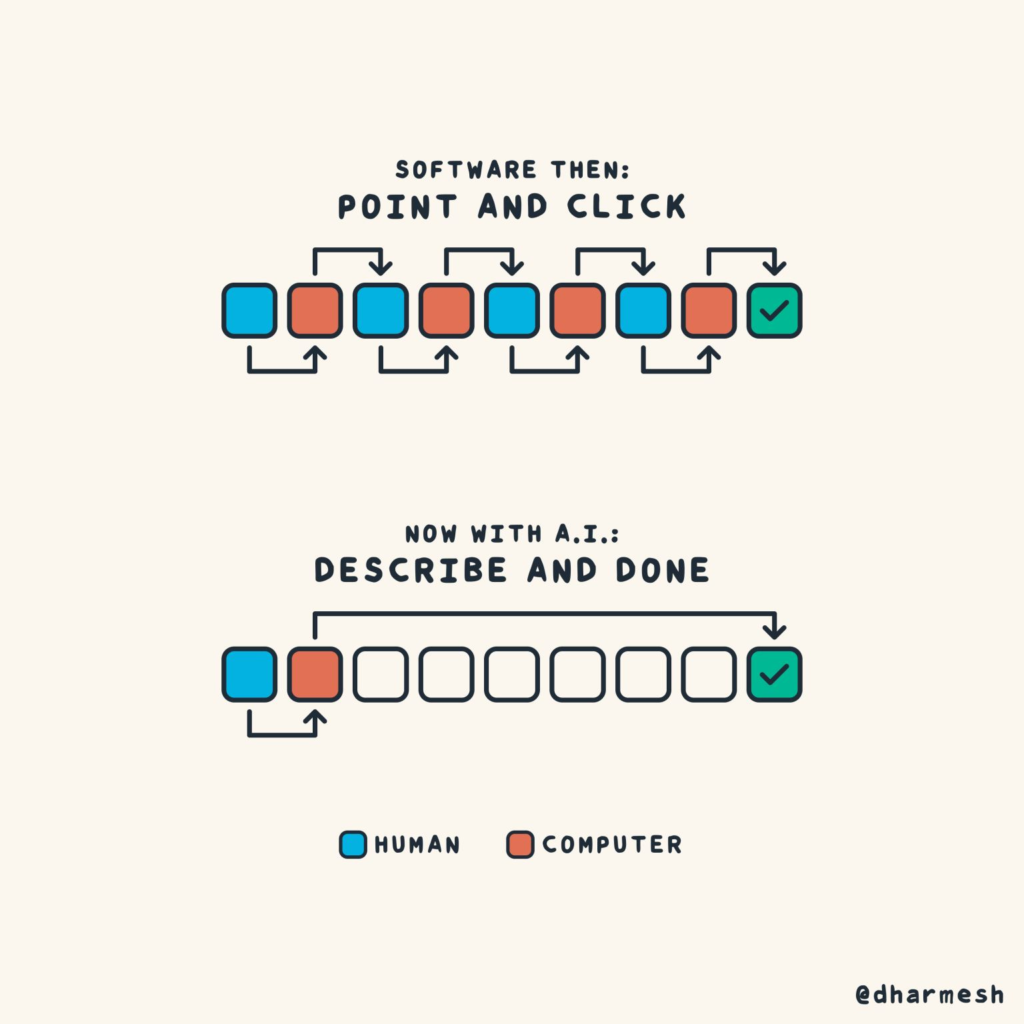
AI can’t currently optimize a piece of content for search engines. It can assist in optimization efforts like meta information development and keyword research, but it has very little ability to create content that follows best practices for on-page SEO.
There are other ways to use generative AI beyond content development. While many tools create full content pieces, other resources like Frase and Notion use AI for different purposes. These resources offer insights on how to improve existing content by suggesting related URLs, keywords, and topics to include.
Some generative AI tools even extend beyond the written word. A variety of platforms specialize in other types of content creation like image generation or even game design. With effective prompts and the right AI tools, organizations can improve efficiency in a wide variety of ways.
Ignoring the potential of AI to simplify processes like writing, research, brief development, or even image design is the antithesis of “work smarter, not harder.” By integrating artificial intelligence tools into the workflow, writers can spend less time and energy on the heavy lifting and focus on the overall quality of the piece of content.
At this point, AI is still in the early stages of development. Human experts can work with AI to produce high-quality content that resonates with the target.
With the limitations that various AI platforms have, what’s the best way to integrate it into a team’s workflow? What situations are perfect for generative AI content, and where does it really struggle? We’ll continue to explore the opportunities AI presents and how to get the most out of each platform throughout the year.
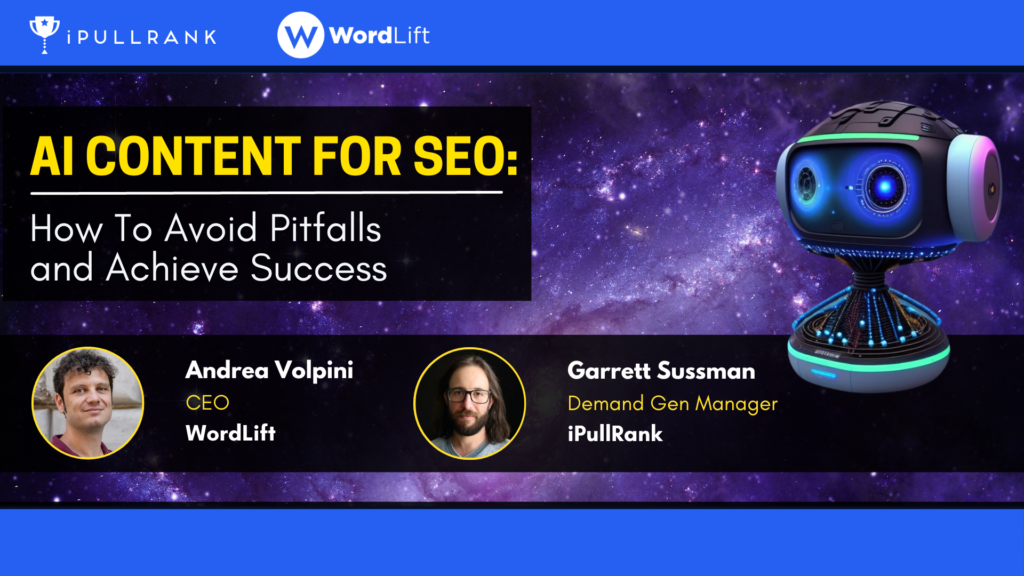
Sign up for the Rank Report — the weekly iPullRank newsletter. We unpack industry news, updates, and best practices in the world of SEO, content, and generative AI.
iPullRank is a pioneering content marketing and enterprise SEO agency leading the way in Relevance Engineering, Audience-Focused SEO, and Content Strategy. People-first in our approach, we’ve delivered $4B+ in organic search results for our clients.
AI is reshaping search. The Rank Report gives you signal through the noise, so your brand doesn’t just keep up, it leads.
